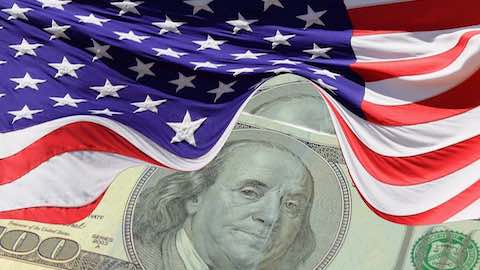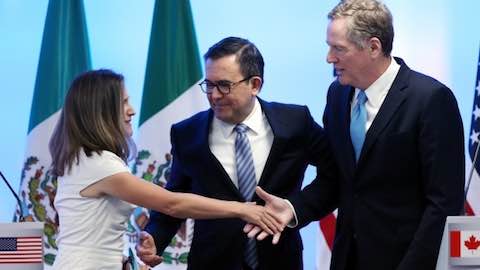- MENU
- HOME
- SEARCH
- WORLD
- MAIN
- AFRICA
- ASIA
- BALKANS
- EUROPE
- LATIN AMERICA
- MIDDLE EAST
- United Kingdom
- United States
- Argentina
- Australia
- Austria
- Benelux
- Brazil
- Canada
- China
- France
- Germany
- Greece
- Hungary
- India
- Indonesia
- Ireland
- Israel
- Italy
- Japan
- Korea
- Mexico
- New Zealand
- Pakistan
- Philippines
- Poland
- Russia
- South Africa
- Spain
- Taiwan
- Turkey
- USA
- BUSINESS
- WEALTH
- STOCKS
- TECH
- HEALTH
- LIFESTYLE
- ENTERTAINMENT
- SPORTS
- RSS
- iHaveNet.com: Trade
Countries
Argentina | Australia | Austria | Benelux | Brazil | Canada | China | France | Germany | Greece | Hungary | India | Indonesia | Ireland | Israel | Italy | Japan | Korea | Mexico | New Zealand | Pakistan | Philippines | Poland | Russia | South Africa | Spain | Taiwan | Turkey | United Kingdom | United States
Cities
Atlanta | Baltimore | Bay Area | Boston | Chicago | Cleveland | DC Area | Dallas | Denver | Detroit | Houston | Los Angeles | Miami | New York | Philadelphia | Phoenix | Pittsburgh | Portland | San Diego | Seattle | Silicon Valley | Saint Louis | Tampa | Twin Cities
-
China has become the world's workshop and Europe has an insatiable appetite for its exports. Most now arrive on giant container ships. But as ports become clogged and delivery times critical, China is once again looking to the old land routes across Asia
-
There are solid grounds to believe that the new bloc will be different, among other things, because it starts out with a big advantage
-
The Trans-Pacific Partnership could add billions of dollars to the U.S. economy and solidify Washington's commitment to the Pacific. But if the Obama administration fails to calm critics of the deal, there is a growing possibility that it could collapse
-
The rising trade barriers that several Latin American countries, especially Brazil and Argentina, are erecting to protect their industries imports are causing growing concern in the hemisphere
-
The international monetary system rests on just two currencies: the dollar and the euro. They are essential to global trade and finance. Were they not widely accepted, the global economy could not sustain current levels of international trade and investment.
-
The president's jobs effort is too little, too late, and too political, RNC Chairman Reince Priebus writes
-
The Senate plans to vote as soon as this week on a bill that would eliminate duties on some imports from 129 nations
-
The Obama administration's first big move on international trade is good news for Asia, but it doesn't bode well for much of Latin America.
-
America's Clean-energy economy needs rare-earth metals to succeed and China has a near monopoly. In 2007, a standoff unfolded between China and several American companies. China was threatening to withhold supplies that keep refiners in business. A worried State Department intervened.
-
The Colombian trade accord, first drafted by former President George W. Bush, and later revised by his incumbent Barack Obama, has been widely criticized for expanding trade relations with a country that still has an enormous record of human rights violations toward political activists and union leaders
-
After the agreement with Panama was passed, President Martinelli spoke of 'fortifying a great and historic friendship between Americans and Panamanians.' Contributing familiar political hyperbole, he diverted attention from the crucial issue of corruption in Panama
-
In the new crisis-ridden global economy, free trade agreements are no longer what they used to be. In the past, when the U.S. economy was growing fast, gaining preferential access to the U.S. market was a make-or-break deal for countries like Colombia or Panama.
-
Havana has announced economic reforms that could eventually allow free market policies to take root in Cuba, exposing the irrationality of Washington's aging and outdated stance toward Havana
-
While heralding the president's decision to put solar panels on the White House roof, a union-backed coalition says it would be an 'empty gesture' if the administration didn't also address trade-distorting subsidies from China, the world's leading maker of solar panels
-
Congress approved the deal in a rare bipartisan achievement after negotiators overcame U.S. auto industry complaints that previous efforts at a deal failed to do enough to lift South Korea's barriers to U.S.-made cars
-
Is Free Trade Good for Colombia, and is it Good for the United States? Has the Free Trade Agreement Between Colombia and the U.S. Reached a Cross Roads?
-
It is time for the international community to recognize that the Doha Round is doomed. Started in 2001 under the auspices of the General Agreement on Tariffs and Trade and its successor, the World Trade Organization (WTO). Yet after countless attempts to achieve a resolution, the talks have dragged on into their tenth year, with no end in sight
-
While U.S. exports to the region are growing, in some cases significantly, their percentage of Latin America's overall imports is shrinking. To put it in economists' jargon, U.S. exports are losing market share in Latin America.
-
The United States and China are again locked in a familiar debate over currency manipulation. In the past, the United States has claimed that China keeps its currency, the yuan, at artificially low levels, which gives it unfair trade advantages. This time around, China is pointing its finger at the United States over its plans to pursue another round of quantitative easing
-
It seems fitting that Avis, the 'We Try Harder' car rental firm, advertises on the U.S. Chamber of Commerce website, including on the page that features bios of top execs. Because nobody tries harder to promote the cause of America's companies than the chamber's President Thomas Donohue. But Donohue has an additional job: boosting fair trade with China

